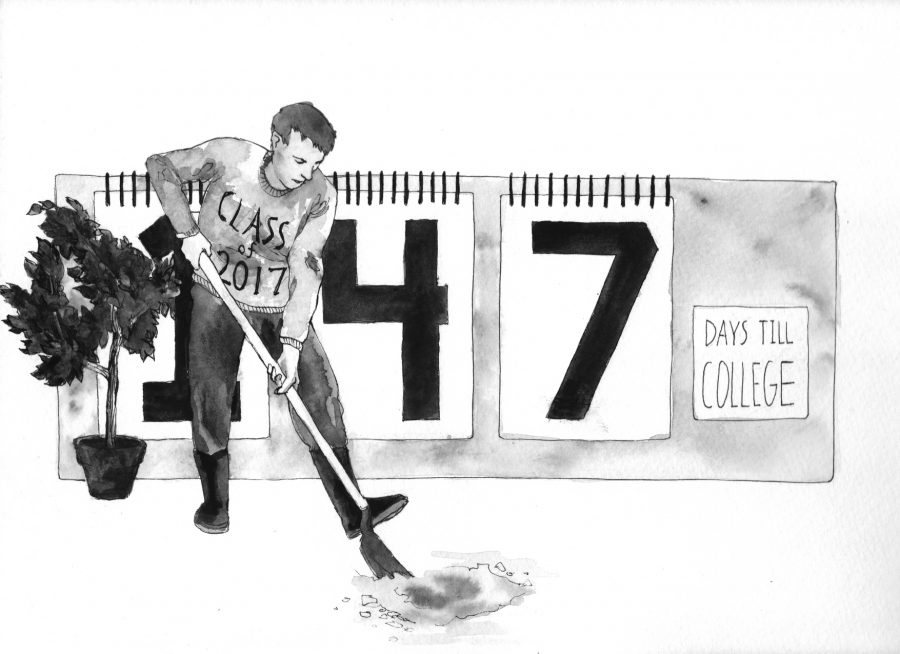As first semester comes to a close, seniors are all looking forward to the freedom that comes with second semester. Although many people see second semester as a time to check out and ignore responsibilities, we believe it’s a time to discover new priorities and check into what matters the most: reality.
As the administration focuses on improving student happiness and providing more balance in academia by considering limiting the number of AP classes students can take (see A1 for the full story), we think it’s the perfect time to look at changing the curriculum for senior year.
Although it’s important that we still put effort into our grades, during second semester we are given an opportunity we have never been given before—to allow ourselves to relax without the thought of college admissions looming over us. We can take the time to prioritize others over ourselves; we’ve taken four years to think about our own futures, and this could be a time to think about the futures of others.
At Loyola High School, students are encouraged to take second semester as a time to get involved in the outside community by participating in a month-long service project of their choice in Los Angeles. This is the perfect example of a way to keep seniors engaged in meaningful work while allowing them to take a break from the typical school experience that they’ve had for years.
We acknowledge that a complete overhaul of a month of school might be too much to ask, but this idea could be incorporated on a small scale with the same effect. Field trips during the school day to underprivileged schools could be organized by seniors for seniors. Even if these trips don’t involve community service, they can still be valuable to students. For example, allowing seniors to plan trips to museums around Los Angeles would let the class get one last chance to appreciate their city while they’re still here.
The school could also expand the one day at the end of the year they take to teach us real-world skills we will need in college, and instead spread it throughout second semester. Another possibility is to bring alumni back for a panel about their college experiences. We would also support optional classes that would allow students to learn money management, how to cook inside a dorm room and how to do laundry. It would even be helpful to hold a session about how to choose classes in college that will allow one to both explore new areas and succeed.
Being a senior shouldn’t just be a culmination of academic work, it should usher us into the rest of our lives. Many of us will be legal adults before the school year is over, and part of being an adult is determining one’s priorities independent of any outside influence. Harvard-Westlake could help us with this vital transition by starting small and giving us space to learn outside of a classroom, whether it be practical knowledge or civic engagement.































